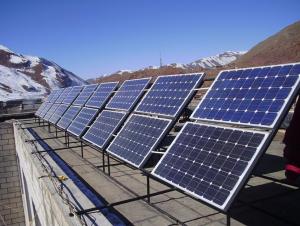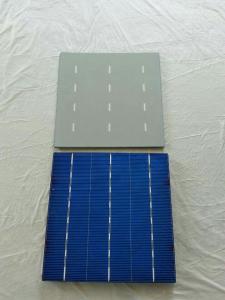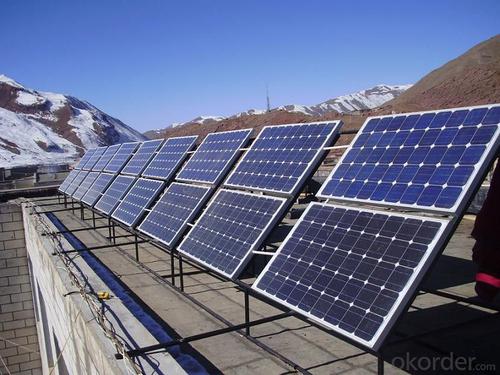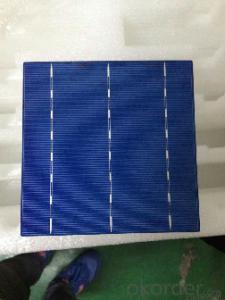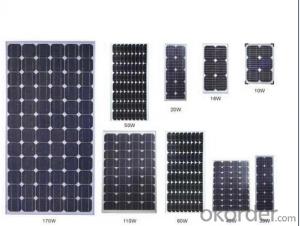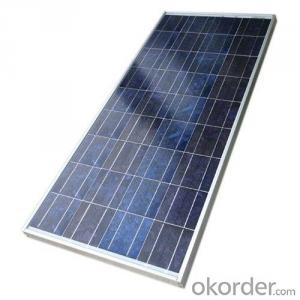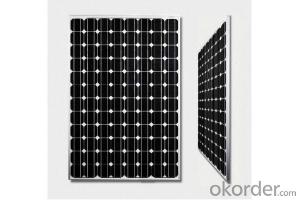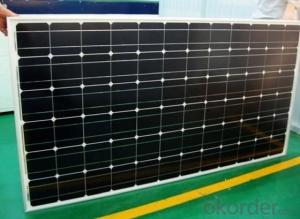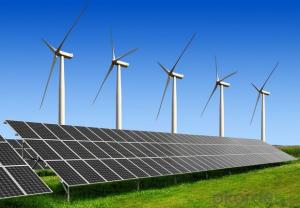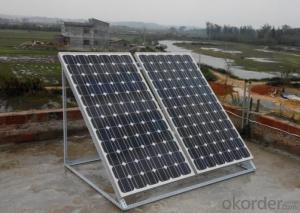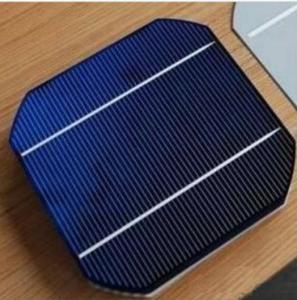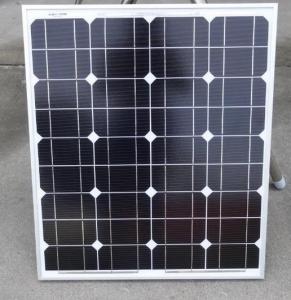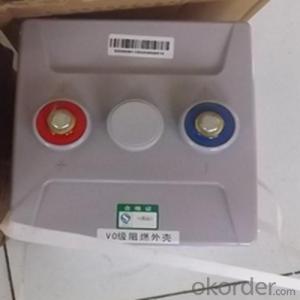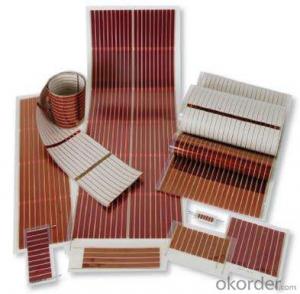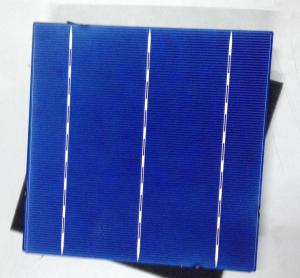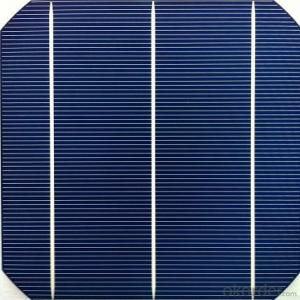Monocrystalline Silicon Solar Cell solar panel Good Quality and Price
- Loading Port:
- China Main Port
- Payment Terms:
- TT or LC
- Min Order Qty:
- -
- Supply Capability:
- -
OKorder Service Pledge
OKorder Financial Service
You Might Also Like
Quick Details
| Material: | Monocrystalline Silicon | Character: | solar panel price | Silicon: | Grade A class |
| EVA: | Material | ||||
Packaging & Delivery
| Packaging Detail: | carton package |
| Delivery Detail: | 20days |
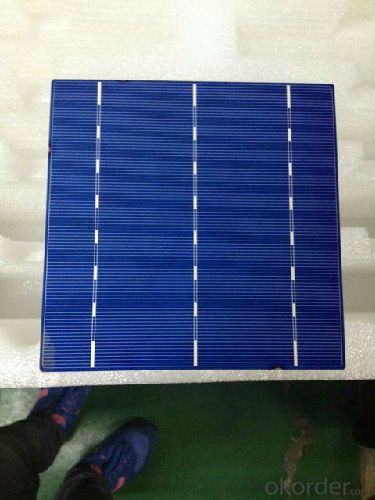
Specifications
monocrystalline solar panel
1.Good quality silicon cell
2.monocrystalline silicon
3.solar module with 2.27 current .5kg
Mono-crystalline silicon cells are the most efficient but also the most expensive type of solar panel. Made from single crystals of silicon, these cells capture 15% of the solar energy that shines on it.
Poly- or multi-crystalline silicon cells are made from silicon cut into very thin strips. They are less efficient than mono-crystalline cells, but are also slightly cheaper to buy.
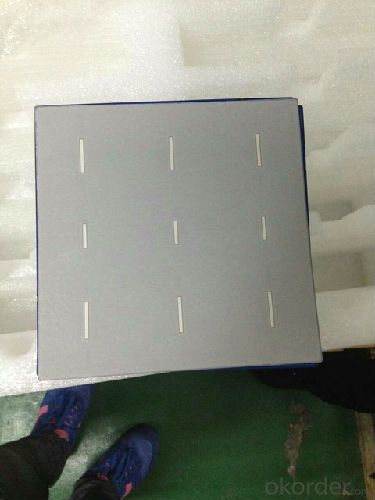
- Q: What materials are commonly used in solar cells?
- Commonly used materials in solar cells include silicon, which is the most widely used material in photovoltaic cells, as well as thin-film materials such as cadmium telluride (CdTe), copper indium gallium selenide (CIGS), and amorphous silicon (a-Si). Other materials like perovskite and organic materials are also being researched and developed for solar cell applications.
- Q: How to define the poly solar cells as the A Grade one?
- It is hard to tell if the poly solar cells you bought has no certificate, ganratees.
- Q: What is a thin-film solar cell?
- A thin-film solar cell is a type of solar cell that is made by depositing one or more thin layers of photovoltaic material onto a substrate, such as glass or plastic. These cells are lightweight, flexible, and can be produced using less material, making them more cost-effective than traditional silicon-based solar cells. However, they typically have a lower efficiency compared to silicon-based cells.
- Q: Which one is better on the solar cells panel? The Monocrystal Solar Energy Cell or photovoltaic cell?
- It depends on where you put the solar cells, and what will you use them for. But I do think photovoltaic cell is better.
- Q: Silicon solar cell power generation principle
- When the junction of two different materials formed by the light irradiation, the process of generating electromotive force.The process of the first material absorbs the energy of the photon, resulting in equal number of positive and negative charge, then these charges were migrated to both sides of the knot, The formation of even electricity layer. Although the effect is not generated instantaneous, but the response time is quite short.
- Q: What is the effect of dust or dirt on solar cell performance?
- The presence of dust or dirt on solar cell surfaces can significantly decrease their performance by reducing the amount of sunlight reaching the cells and interfering with the efficient transfer of electrons. This can lead to a decrease in the overall power output of the solar system. Regular cleaning and maintenance are essential to ensure optimal performance and maximize energy production.
- Q: Can solar cells be used for powering remote data collection devices?
- Yes, solar cells can be used for powering remote data collection devices. Solar cells harness sunlight and convert it into electricity, providing a reliable and sustainable source of power for devices located in remote areas where access to traditional power sources may be limited or unavailable.
- Q: I am working on research for the usage of solar cells, where can I find more news of solar cells?
- www.solardaily could be the website that you are looking for.
- Q: Can solar cells be used underwater?
- No, solar cells cannot be used underwater as they rely on sunlight to generate electricity. Water blocks sunlight and prevents the solar cells from functioning effectively.
- Q: Can solar cells be used for powering agricultural equipment?
- Yes, solar cells can be used for powering agricultural equipment. Solar panels can generate electricity from sunlight, which can then be used to power various agricultural equipment such as irrigation systems, water pumps, and electric fences. This can provide a sustainable and environmentally friendly alternative to traditional power sources, especially in remote or off-grid farming locations.
Send your message to us
Monocrystalline Silicon Solar Cell solar panel Good Quality and Price
- Loading Port:
- China Main Port
- Payment Terms:
- TT or LC
- Min Order Qty:
- -
- Supply Capability:
- -
OKorder Service Pledge
OKorder Financial Service
Similar products
Hot products
Hot Searches
Related keywords
